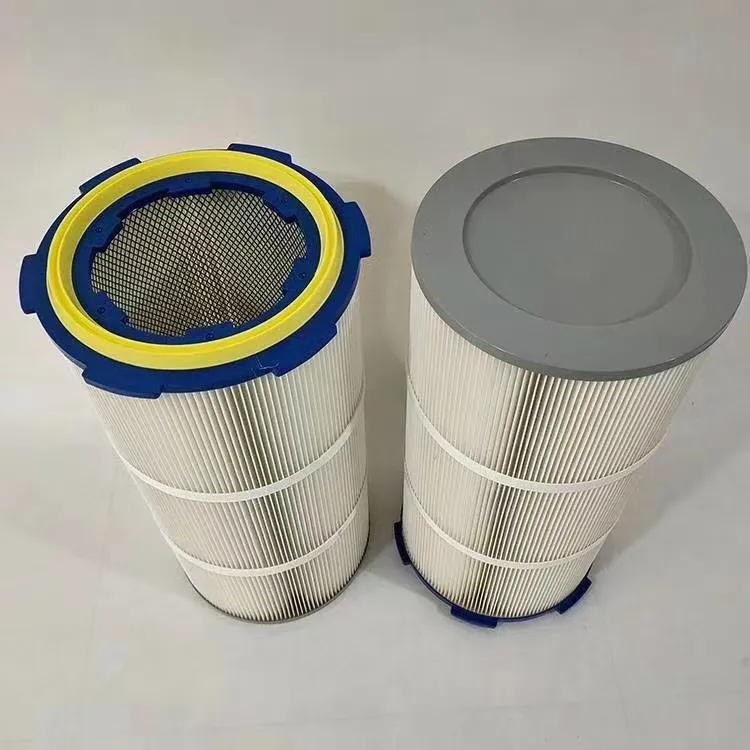 Tel:
+8615930870079
Tel:
+8615930870079
أكتوبر . 15, 2024 01:30 Back to list
High-Performance Sintered Metal Filter Cartridge for Efficient Filtration Solutions
Understanding Sintered Metal Filter Cartridges
Sintered metal filter cartridges are vital components in various industrial filtration processes, designed to efficiently remove impurities and contaminants from liquids and gases. These filters are made through a sintering process, where fine metal powders are heated below their melting point until they bond together, creating a porous structure. This unique manufacturing technique results in a filter that possesses exceptional strength, durability, and thermal resistance, making it a preferred choice for many applications.
Key Features and Advantages
One of the primary advantages of sintered metal filter cartridges is their ability to handle high temperatures and pressures. Unlike traditional filters made from paper or fiber, sintered metal filters can operate effectively in extreme conditions, making them suitable for industries such as petrochemical, food and beverage, pharmaceuticals, and aerospace. Their robust nature ensures longevity, reducing the need for frequent replacements and maintenance.
Another significant benefit of sintered metal filters is their fine filtration capabilities. The porosity of the sintered material can be precisely controlled during manufacturing, allowing the creation of filters with specific pore sizes. This control means that businesses can select filters that meet their exact filtration requirements, whether for removing particulates, bacteria, or larger impurities.
Moreover, sintered metal filters are easily cleanable and reusable, providing a cost-effective solution over time
. Many filters in other materials become clogged, requiring disposal; however, sintered metal filters can be backwashed, steamed, or chemically cleaned, extending their operational lifespan significantly.Applications in Various Industries
sintered metal filter cartridge

Sintered metal filter cartridges find application across numerous sectors. In the petrochemical industry, they are used to filter crude oil and natural gas, removing sand, silt, and other particulates. Similarly, in the food and beverage sector, these filters maintain product purity by eliminating contaminants during processing and packaging, ensuring the safety and quality of consumables.
In the pharmaceutical sector, stringent regulations require the utmost cleanliness in processing steps. Sintered metal filters ensure that production environments remain sterile and free from microbial contamination, aiding in compliance with health standards. Additionally, these filters are crucial in the aerospace industry, where they play a role in filtering hydraulic fluids and fuels, contributing to operational safety.
Environmental Considerations
The increasing focus on sustainability and environmental protection has amplified the importance of sintered metal filters. Their reusability aligns with the growing trend towards reducing waste in industrial processes. By minimizing the disposal of single-use filters, companies can decrease their environmental footprint while benefiting from the long-term cost savings associated with sintered metal filters.
Conclusion
In conclusion, sintered metal filter cartridges represent a sophisticated solution for filtration needs in various industries. Their ability to withstand harsh conditions combined with fine filtration capabilities and reusability makes them an indispensable tool in maintaining product quality and operational efficiency. As industries continue to evolve and seek more effective filtration solutions, the adoption of sintered metal filters is likely to grow, driven by their numerous advantages and contributions to sustainability. Whether it’s ensuring the purity of food, the safety of pharmaceuticals, or the efficiency of energy production, sintered metal filter cartridges are an integral part of modern filtration technology.
-
Types and Applications of Air Filtration CartridgesNewsJul.28,2025
-
The Role of Gas Turbine FiltersNewsJul.28,2025
-
Mastering Air Filter Cartridge UseNewsJul.28,2025
-
Advanced Turbine Filters for Modern Gas TurbinesNewsJul.28,2025
-
Cellulose Air Filter Cartridge Advantages in Dust FiltrationNewsJul.28,2025
-
Cellulose Filters for Air Particle ReductionNewsJul.28,2025

 Email:
Email:





